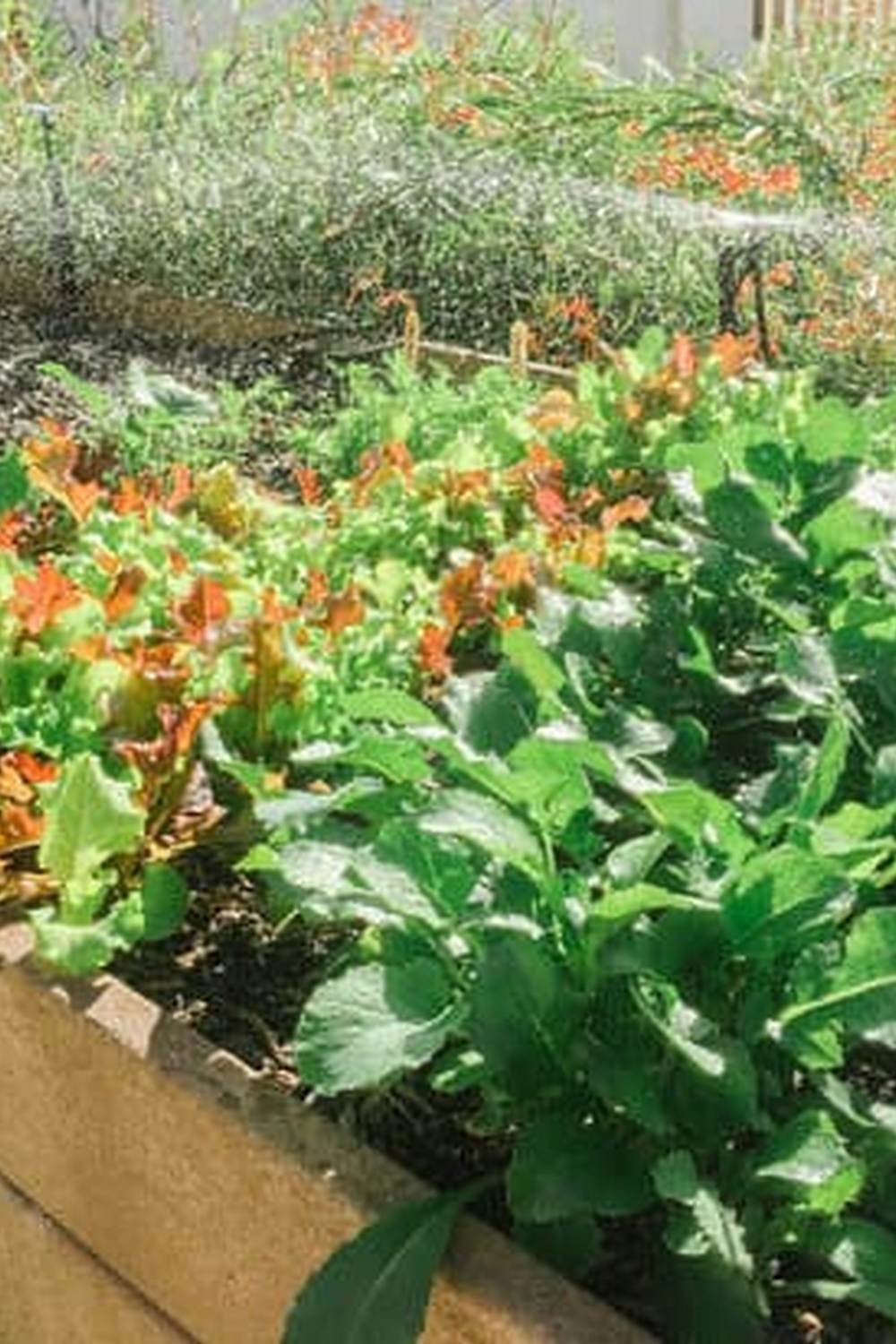Castor oil is a versatile and widely used substance known for its numerous benefits in various fields, including medicine, industry, and even as a beauty product. However, when it comes to using castor oil in vegetable gardens, some gardeners may be uncertain about its safety and potential impact on the plants and the environment.
In this article, we will delve into the topic of whether castor oil is safe for vegetable gardens. We will explore its chemical makeup, examine the advantages and disadvantages it offers for pest control and soil enrichment, consider expert opinions and research findings, discuss application methods, dosage recommendations, as well as alternative organic pest control methods.
Before deciding to use any substance in our vegetable gardens, it is crucial to understand what it is composed of. Castor oil is a natural plant-based oil derived from the seeds of the Ricinus communis plant. It consists mainly of triglycerides which are fatty acid esters formed from glycerol and three molecules of fatty acids. Additionally, castor oil contains small amounts of other compounds such as ricinoleic acid which contributes to its unique properties.
One major benefit that castor oil can offer vegetable gardens is its effectiveness as a natural pest control method. It acts as a deterrent against certain insects such as aphids, whiteflies, moles, and voles due to its pungent smell which repels them.
Moreover, castor oil has been found to possess soil enriching properties by promoting microbial activity which helps break down organic matter and release essential nutrients for plants’ growth. However, along with these benefits come potential drawbacks and risks that need to be addressed before determining if castor oil is safe for vegetable gardens or not.
The Composition of Castor Oil
Overview of Castor Oil Composition
Castor oil, derived from the seeds of the Ricinus communis plant, is a well-known vegetable oil that has been used for various purposes for centuries. It is composed primarily of triglycerides, which are esters formed from glycerol and fatty acids. The main fatty acid present in castor oil is ricinoleic acid, which gives the oil its unique properties.
Ricinoleic Acid: A Key Component
Ricinoleic acid constitutes a significant portion of castor oil, typically ranging from 80 to 90 percent. This monounsaturated fatty acid is responsible for many of the beneficial qualities associated with castor oil. Ricinoleic acid has natural antimicrobial, anti-inflammatory, and moisturizing properties. These characteristics make it an effective ingredient in various skin care products.
Other Components in Castor Oil
In addition to ricinoleic acid, castor oil contains other fatty acids such as oleic, linoleic, stearic, and palmitic acids. These contribute to its overall composition and may also have specific effects on plants in vegetable gardens. Castor oil also contains small amounts of other compounds like vitamin E and phytosterols, which can provide additional benefits to plants.
Understanding the chemical makeup of castor oil is essential when considering its use in vegetable gardens. By understanding its composition and individual components, gardeners can gain more insight into how this natural product can potentially affect their plants and soil health.
The Benefits of Castor Oil for Vegetable Gardens
Castor oil, derived from the seeds of the castor oil plant, has been used for centuries in a variety of applications. When it comes to vegetable gardens, castor oil offers several benefits that can help gardeners maintain a healthy and thriving garden. In this section, we will explore two main benefits of using castor oil in vegetable gardens: pest control and soil enrichment.
One of the key advantages of using castor oil in vegetable gardens is its effectiveness in controlling pests. Castor oil acts as a natural deterrent to many common garden pests such as moles, voles, gophers, and rats.
Its strong scent and taste make it unpalatable for these pests, leading them to avoid treated areas altogether. This natural pest control method can help protect your vegetables from being damaged or eaten by unwanted critters, saving you time and effort in preventing pest-related issues.
In addition to pest control, castor oil also provides valuable nutrients to the soil in vegetable gardens. The oil is rich in essential nutrients like nitrogen, potassium, and phosphorus – all of which are crucial for plant growth and development. These nutrients not only help plants to produce lush foliage but also encourage robust root systems. By enriching the soil with castor oil regularly, gardeners can improve the overall health and productivity of their vegetable plants.
To fully reap the benefits of using castor oil in your vegetable garden, it is important to know how to apply it effectively. One common method is mixing a small amount of castor oil with water and spraying it directly onto affected areas or around the perimeter of your garden.
Alternatively, you can also mix castor oil into your compost or soil before planting your vegetables. As for dosage, it is recommended to follow product instructions or consult gardening professionals for specific guidance depending on the size and type of your vegetable garden.
Potential Drawbacks and Risks
As with any product, it is important to evaluate the potential drawbacks and risks associated with using castor oil in vegetable gardens. While castor oil has many benefits for pest control and soil enrichment, there are some safety concerns that should be taken into consideration.
One of the main safety concerns when using castor oil in vegetable gardens is its toxicity to humans and animals. Castor oil contains a toxic compound called ricin, which can cause severe poisoning if ingested. It is important to handle and store castor oil properly to prevent accidental ingestion.
In addition to its toxicity, castor oil can also have negative effects on the environment. When applied excessively or improperly, it can contaminate water sources and harm beneficial insects, birds, and other wildlife. It is important to follow recommended application methods and dosage guidelines to minimize these potential risks.
To further understand the safety concerns of castor oil, research studies and expert opinions should be considered. Scientific research has shown that while ricin is present in castor oil, it is not easily absorbed by plants or transferred to their fruits or vegetables. However, precautions still need to be taken when handling the oil to avoid ingestion or inhalation.
| Safety Concerns | Precautions | Effects on Environment |
|---|---|---|
| Toxicity to humans and animals | – Handle and store properly
| – Contamination of water sources
|
| Potential for ricin presence | – Low risk of absorption by plants
| – Recommended application methods and dosage
|
Overall, while there are potential drawbacks and risks associated with using castor oil in vegetable gardens, proper precautions can be taken to mitigate these concerns. By following recommended application methods, handling the oil properly, and being mindful of its potential environmental impacts, gardeners can safely reap the benefits of castor oil for pest control and soil enrichment.
However, for those who are still concerned about the safety or prefer alternative options, it is worth exploring other organic pest control methods that are safe and healthy for gardens.
Research and Expert Opinions
Scientific Studies on Castor Oil
Numerous scientific studies have been conducted to evaluate the effectiveness and safety of using castor oil in vegetable gardens. One study published in the Journal of Economic Entomology found that castor oil-based products can be highly effective in controlling common garden pests such as aphids, whiteflies, and mites. The study concluded that the use of castor oil is not only promising for pest control but also for improving overall plant health.
Another study published in the International Journal of Pest Management focused on the effects of castor oil on soil health. The researchers found that the application of castor oil resulted in increased organic matter content and improved soil structure, leading to enhanced water retention and nutrient availability. This suggests that apart from its role in pest control, castor oil can also contribute to enriching the soil in vegetable gardens.
Gardening Professionals’ Perspectives
Many gardening professionals and experts also support the use of castor oil in vegetable gardens. They emphasize the potential benefits it offers without posing significant risks to plants or human health. According to experienced gardeners, using castor oil can effectively deter pests while maintaining a safe environment for both plants and beneficial insects.
Gardeners report that castor oil acts as a repellent for various pests, discouraging them from approaching treated areas. Additionally, its oily texture helps suffocate soft-bodied insects upon contact, making it an efficient natural pesticide alternative. Experts often recommend combining castor oil with other organic ingredients such as garlic or vinegar for even better results.
Overall, scientific research and professional opinions indicate that using castor oil in vegetable gardens can be a safe and effective method for pest control and soil enhancement. However, it is still important to consider any potential drawbacks or risks associated with its use before employing it in your garden.
Application Methods and Dosage
When it comes to using castor oil in vegetable gardens, proper application methods and dosage are crucial to ensure its effectiveness and safety. To get the most out of this natural remedy, gardeners should follow these best practices.
Firstly, it is important to dilute the castor oil before applying it to the garden. Pure castor oil can be too concentrated and may harm plants or cause leaf burn. To make a diluted solution, mix one part castor oil with nine parts water. This mixture will still be effective in repelling pests while being gentler on plants.
Next, consider the appropriate timing for applying castor oil in the garden. It is best to apply it during periods when pests are most active, such as early morning or evening hours. This ensures that the oil remains on the plants for a longer period of time when pests are likely to be present.
When applying castor oil, it is important to target specific areas where pests are likely to congregate or enter the garden. Concentrate on borders, entry points, and areas with high pest activity. This targeted approach maximizes the effectiveness of castor oil while minimizing its impact on beneficial insects.
In terms of dosage, start with a small amount of diluted castor oil and observe its effects over time. It is recommended to begin with one or two applications per week and gradually increase if necessary. However, it is crucial not to exceed the recommended dosage as using too much castor oil can lead to negative consequences such as soil disruption or plant damage.
By following these application methods and dosage guidelines, gardeners can safely integrate castor oil into their vegetable gardens and enjoy its benefits without putting their plants at risk.
Case Studies and Success Stories
As the popularity of organic gardening continues to rise, many gardeners are turning to castor oil as a natural and environmentally friendly solution for pest control and soil enrichment in their vegetable gardens. While scientific research provides valuable insight into the efficacy and safety of castor oil, case studies and success stories from real-life experiences can provide additional perspectives on its benefits and potential drawbacks.
One such case study comes from Sarah, an avid gardener who has been using castor oil in her vegetable garden for several years. She initially started using it as a pest control method after struggling with a severe infestation of moles and voles. Sarah applied castor oil to her garden beds using a sprayer, following recommended dosage guidelines. Over time, she noticed a significant decrease in mole and vole activity, leading to healthier plant growth and increased crop yield.
Another success story comes from Mark, who had been facing issues with compacted soil in his vegetable garden. After researching natural ways to improve soil structure, he decided to give castor oil a try.
Mark used a diluted solution of castor oil mixed with water and applied it directly to the affected areas of his garden. Over the course of several months, he observed that the soil became looser and more friable, allowing for better root penetration and nutrient uptake by his plants.
These anecdotal experiences highlight the potential benefits of using castor oil in vegetable gardens. However, it is important to note that individual results may vary depending on factors such as climate, soil type, and specific pest issues. It is always recommended to conduct thorough research, consult with gardening professionals or fellow gardeners, and follow proper application methods when considering the use of castor oil in your own vegetable garden.
| Case Study | Results |
|---|---|
| Sarah | Significant decrease in mole and vole activity, healthier plant growth, increased crop yield |
| Mark | Improved soil structure, looser and more friable soil, better root penetration and nutrient uptake |
Alternative Organic Pest Control Methods
While castor oil can be an effective pest control option for vegetable gardens, it is important to consider alternative organic methods for those who may have concerns about using castor oil. Fortunately, there are a variety of other options available that can help maintain a safe and healthy garden.
One alternative method is the use of companion planting. This technique involves growing certain plants together to deter pests from attacking your vegetables. For example, marigolds emit a strong scent that repels many common garden pests like aphids and nematodes. Planting marigolds alongside your vegetables can provide natural pest control without the need for chemical interventions.
Another option to explore is the use of organic insecticidal soaps. These soaps are made from natural ingredients like plant oils and fatty acids, making them safe to use in vegetable gardens. They work by suffocating insects on contact, effectively controlling pests without harming beneficial insects or plants. Insecticidal soaps can be applied directly onto affected plants or used as a preventive measure.
Additionally, implementing physical barriers can also be an effective means of pest control. One popular method is using floating row covers to protect your crops from insects and other pests. These covers are made from lightweight fabric that allows sunlight, air, and water to penetrate while keeping pests out. Floating row covers can be easily installed over your garden beds and provide a protective barrier against pests throughout the growing season.
Conclusion
In conclusion, when considering the use of castor oil in vegetable gardens, it is important to make an informed decision that takes into account the composition, benefits, potential risks, research findings, and real-life experiences. Castor oil can be a valuable tool for pest control and soil enrichment due to its chemical makeup and properties. However, it is crucial to understand the potential drawbacks and safety concerns associated with its use.
Research and expert opinions play a significant role in determining the safety and effectiveness of castor oil in vegetable gardens. Scientists and gardening professionals provide valuable insights based on their studies and experience. It is advisable to consult these experts and consider their recommendations before incorporating castor oil into your gardening practices.
Furthermore, understanding proper application methods and dosage is essential. Following best practices ensures that castor oil is used effectively while minimizing any potential harm to plants, animals, or the environment. Case studies and success stories can provide useful examples of how others have successfully used castor oil in their vegetable gardens.
Lastly, it is important to explore alternative organic pest control methods. While castor oil may have its benefits, there are other options available that may better suit your needs or preferences. By researching and trying out different techniques, you can find an approach that promotes a safe and healthy garden environment.
In summary, making an informed decision about whether to use castor oil in vegetable gardens involves considering its composition, benefits, risks, research findings, application methods/dosage requirements, case studies/success stories, as well as exploring alternative organic pest control methods. This comprehensive approach will help ensure that you choose the most appropriate method for maintaining a robust garden while prioritizing safety.
Frequently Asked Questions
Can you use castor oil in a vegetable garden?
Castor oil can indeed be used in a vegetable garden as a natural and organic choice for managing pests. It is commonly utilized to deter various insect pests, such as aphids, whiteflies, and beetles that can damage vegetables. The strong smell and taste of castor oil act as repellents, creating an unfavorable environment for these pests.
Additionally, the oil’s thick texture can also suffocate certain soft-bodied insects. However, it is important to note that castor oil should be used sparingly and with caution, as excessive application may have adverse effects on plant health.
Can castor oil be used as a pesticide?
Yes, castor oil has long been recognized for its pesticidal properties and can be effectively used as an alternative to synthetic pesticides. It contains two compounds—ricinoleic acid and undecylenic acid—that possess insecticidal and fungicidal properties.
These compounds make it an effective deterrent against various common garden pests like ants, moles, voles, and even some rodents like mice or rats. The use of castor oil acts as a natural pesticide option without introducing harmful chemicals into the environment.
What animals does castor oil repel?
Castor oil is known to repel several animals due to its strong smell and taste. Moles are one such animal that finds the scent of castor oil unpleasant. Applying castor oil in garden areas where moles are present might help deter them from causing damage by tunneling beneath the ground.
It is worth mentioning that while many animals might find castor oil repellent, its effectiveness may vary depending on factors such as concentration, frequency of application, and individual animal behaviors. Therefore, in cases where animal problems persist despite the use of castor oil, additional strategies may need to be implemented alongside its application for better results.

If you’re looking to get into vegetable gardening, or are just looking for some tips on how to make your current garden better, then you’ve come to the right place! My name is Ethel and I have been gardening for years. In this blog, I’m going to share with you some of my best tips on how to create a successful vegetable garden.





